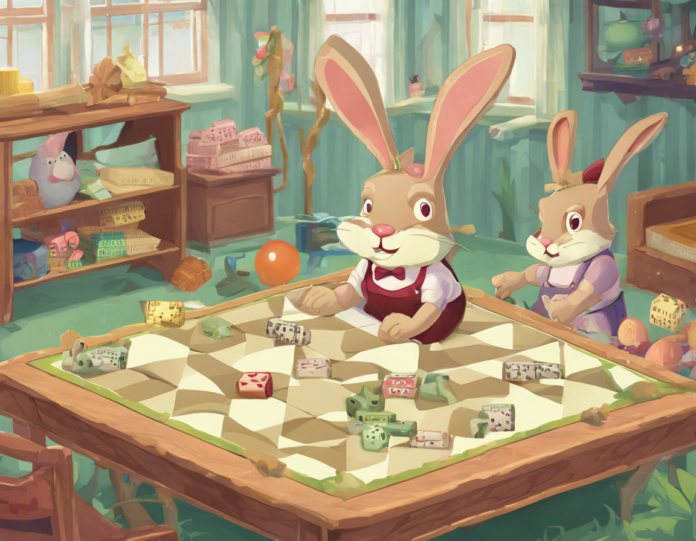Introduction
The Bunny Game is a controversial and unsettling 2010 independent horror film directed by Adam Rehmeier. The movie follows the story of a prostitute named Bunny, who is abducted by a truck driver and subjected to horrifying acts of violence and degradation over a period of several days. The film has gained notoriety for its extreme and graphic content, pushing the boundaries of what is considered acceptable in cinema. In this post, we will delve into the disturbing realities of The Bunny Game and explore the ethical and artistic implications of its creation.
The Plot
The film opens with Bunny (played by Rodleen Getsic, who co-wrote the script based on her own experiences) going about her life as a sex worker. She is shown engaging in various transactions with clients, highlighting the dangers and dehumanization faced by individuals in the sex industry. Bunny’s life takes a dark turn when she accepts a ride from a truck driver (Jeff Renfro), who promptly kidnaps her and holds her captive in his truck.
What follows is a harrowing descent into violence and depravity as Bunny is subjected to physical and psychological torture at the hands of her captor. The truck driver forces Bunny to endure unspeakable acts, including beatings, sexual assault, and humiliation. Throughout the film, the audience is confronted with scenes of extreme brutality and degradation, blurring the line between reality and fiction.
Controversies
The Bunny Game has been met with widespread condemnation due to its explicit and graphic content. The film features scenes of extreme violence, sexual abuse, and degradation, pushing the boundaries of what is deemed acceptable in cinema. Critics have accused the movie of glorifying and exploiting the suffering of its female protagonist, raising ethical concerns about the depiction of violence against women on screen.
Furthermore, the film’s use of real-time footage and handheld camera techniques adds a disturbing sense of realism to the proceedings, leaving viewers unsettled and questioning the blurred boundaries between fiction and reality. The decision to cast Rodleen Getsic, an artist and musician with no prior acting experience, in the lead role has also sparked debates about the ethics of subjecting an untrained performer to such intense and traumatic material.
Artistic Merit
Despite the controversies surrounding its content, The Bunny Game has been praised for its raw and unflinching portrayal of trauma and survival. The film eschews traditional narrative conventions in favor of a visceral and experiential approach, immersing the audience in Bunny’s nightmarish ordeal. The minimalistic aesthetic, haunting soundtrack, and stark black-and-white cinematography contribute to the film’s unnerving atmosphere, creating an intense and claustrophobic viewing experience.
Furthermore, The Bunny Game can be seen as a commentary on the exploitation and objectification of women in society, shining a light on the pervasive issues of gender-based violence and misogyny. By placing the audience in the uncomfortable position of witnessing Bunny’s suffering up close, the film forces viewers to confront their own complicity in the culture of violence and abuse.
Conclusion
In conclusion, The Bunny Game is a challenging and controversial film that pushes the boundaries of horror cinema. While its graphic content and disturbing subject matter may not be to everyone’s taste, the movie serves as a provocative exploration of trauma, survival, and the dark underbelly of human nature. By confronting its audience with uncomfortable truths and visceral imagery, The Bunny Game forces us to reckon with the disturbing realities of violence and exploitation in our society.
FAQs
Q: Is “The Bunny Game” based on a true story?
A: While the film is not a direct adaptation of a true story, it is inspired by the real-life experiences of co-writer and lead actress Rodleen Getsic.
Q: What was the motivation behind creating such a controversial film?
A: Director Adam Rehmeier has stated that he wanted to challenge traditional ideas of horror and provoke a strong emotional response from viewers.
Q: How was the film received by critics and audiences?
A: The Bunny Game received mixed reviews from critics, with some praising its raw intensity and others condemning its excessive violence and exploitation.
Q: Are there any censored versions of the film available?
A: Some versions of the film have been edited to comply with censorship regulations in certain countries, but the original uncut version is the most widely known.
Q: What impact has “The Bunny Game” had on the horror genre?
A: The film has sparked debates about the depiction of violence and exploitation in horror cinema, influencing discussions about ethics and boundaries in filmmaking.

